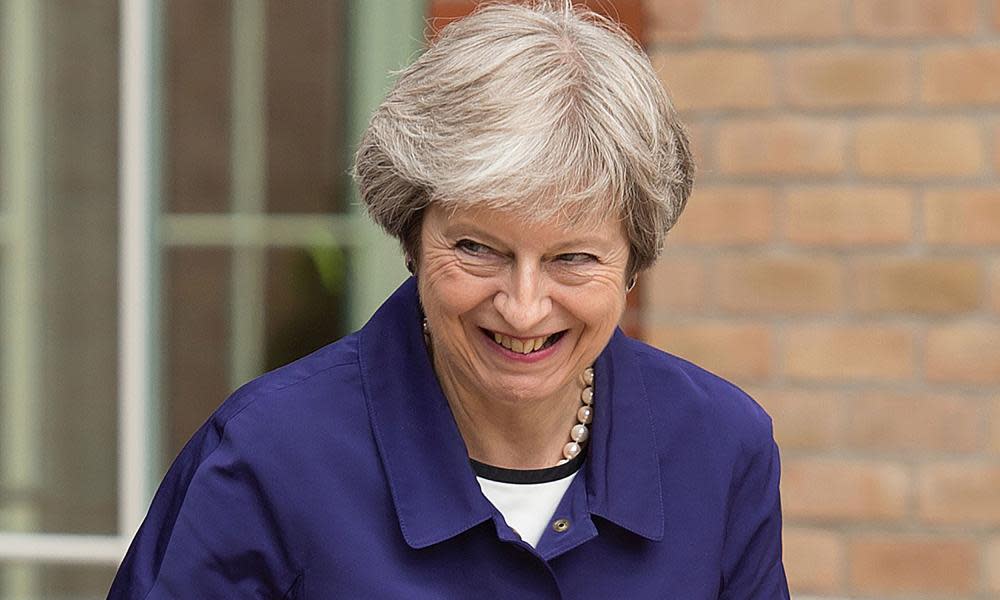The Guardian view on May’s Brexit: needs parliament’s support

A couple of hours is a very long time in politics. Before 2.15pm on Wednesday, the former Tory attorney general Dominic Grieve presented an amendment to give MPs the right to decide what happens if the Commons rejects the eventual Brexit deal. Mr Grieve had been leading a band of a dozen or so Tory rebels on the issue of a “meaningful vote”. With Jeremy Corbyn’s Labour party bringing in sick MPs and convincing its Brexit-leaning parliamentarians to back the Tory rebel amendment, Theresa May’s government was heading for defeat. This would have been no bad thing. Mr Grieve’s laudable and correct aim was to stop the government leaving parliament with a dilemma later this year: take a deal, however unsatisfactory, or end up with no Brexit deal. Ninety minutes later, Mr Grieve, persuaded that parliamentary sovereignty could be observed in other ways, voted against his own amendment.
What the former Conservative cabinet minister had wanted was a legally binding insurance policy, protecting the country against a foreseeable catastrophe. Instead, he accepted a risky gamble: that Tory rebels would be prepared to vote against a Brexit deal they did not like when the stakes would be much higher. One of the reasons Mr Grieve did so was because he said he could not ignore Mrs May’s entreaty to him that his actions could “undermine the government’s negotiating position in trying to get the United Kingdom the best possible deal for leaving the EU”. This overlooks the awkward fact that the irrationality of Mrs May’s Brexit enterprise means that there is a vanishingly small basis on which to form any calculable probability of anything it involves. However, rather late in the day it dawned on Mr Grieve that the “ultimate sanction” for a Brexit deal that parliament could not back was a motion of no confidence in the government.
There is a spectrum of ways for parliament to hold the executive to account, most of which are shy of a legal commitment. Ministers operate within a system of constraint, overseen by MPs. Ultimately the government is answerable to the electorate for its actions. If Mrs May were to lose a Commons vote, even if it were a non-binding one, on a deal after 18 months of talks in Brussels, it would break her authority as prime minister. She might choose to ignore such a vote and crash out of the EU or adopt her own “deal” regardless. But either way she would be taking the country on a perilous journey into the economic unknown without the full approval of parliament. Her days in No 10 would be numbered.
Mrs May needs a deal that MPs can live with – one that does not endanger this country’s economy and wellbeing. To his credit, Labour’s Keir Starmer has argued this for more than a year. Mr Grieve was right to make the case that this logic should have legal teeth. But the quest for a truly meaningful vote proved beyond him. Mrs May concedes just enough to avoid Commons defeats. Yet the more cards she reveals, the tighter she presses the rest to her chest. This cannot go on much longer. The UK has a few months to publish its terms of withdrawal, yet no British solution to the Irish border challenge appears in sight. This will almost certainly require a high degree of regulatory alignment with the EU. Yet Brexiters encourage the delusion that they will happily crash out of the EU if Brussels does not offer a deal on their terms. Mrs May has called the bluff of loyalist backbench critics. It is time do so with her cabinet colleagues who want a hard Brexit.

 Yahoo News
Yahoo News 
